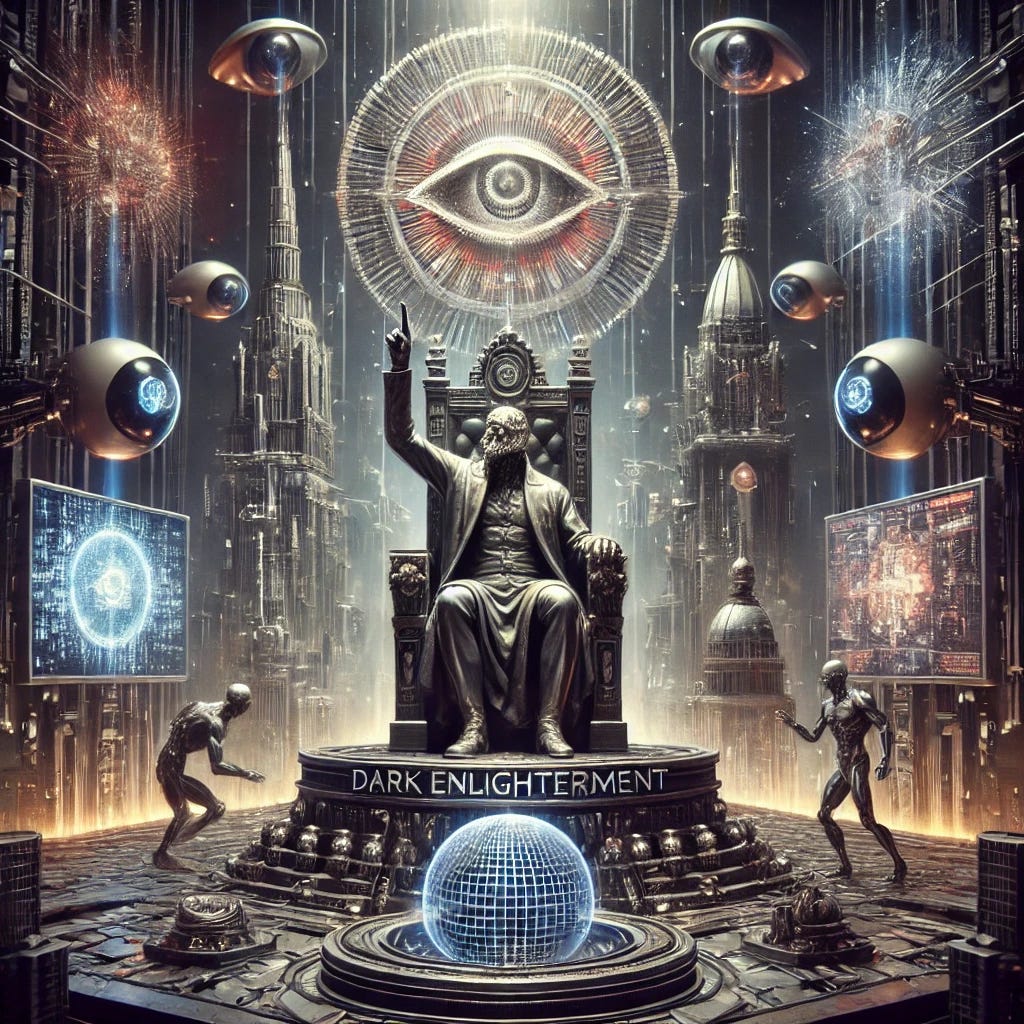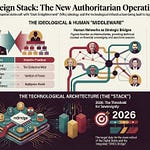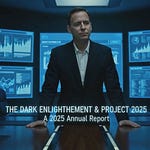
Is America on a Path to Dark Enlightenment?
The trajectory of America's political and social landscape raises the question: Is the U.S. on a path toward Dark Enlightenment—a future shaped by technocratic rule, elite control, and authoritarian governance? This question requires careful examination, as the Dark Enlightenment (NRx) movement has subtly gained traction, influencing Silicon Valley elites, conservative intellectuals, and even mainstream politics.
1. The Growing Influence of NRx Ideas
NRx thinking has grown beyond online subcultures to impact real-world governance. Key figures like Peter Thiel, JD Vance, and Blake Masters have actively championed NRx ideas, suggesting that democracy is flawed and must be replaced with alternative governance models—such as neocameralism or authoritarian technocracies. These individuals are closely tied to Silicon Valley, where technological elitism and corporate governance are already dominant. Thiel's financial backing of Vance and Masters represents a deliberate push to bring NRx-aligned thinkers into the political mainstream.
2. Technology and Authoritarianism: Silicon Valley's Role
In the era of accelerating technological advancements, the NRx vision of tech-driven governance is taking shape. Figures like Elon Musk—who advocates for AI-driven decision-making—and Thiel, who has expressed skepticism about democracy, envision a world where technocrats (tech billionaires and experts) hold the reins of power, instead of elected officials. Their influence over political structures is becoming more apparent, as they push for digital surveillance, universal basic income (UBI), and AI-regulated governance to pacify the masses while maintaining elite control.
3. The Role of Conspiracy and Distrust in Democracy
NRx thinkers use conspiratorial narratives—such as the concept of "The Cathedral"—to delegitimize modern democratic institutions and justify anti-democratic alternatives. "The Cathedral" refers to a self-reinforcing network of media, academia, and government that, according to NRx, propagates progressive ideologies and suppresses dissenting voices. This structural metaphor plays a key role in framing the liberal establishment as the enemy, empowering populist movements that seek to tear down democratic norms and replace them with authoritarian control.
4. The Threat of Post-Democracy
As we move toward post-democratic governance, the shift toward authoritarianism is becoming more pronounced. The embrace of UBI, the rise of AI surveillance systems, and the consolidation of power in the hands of corporate elites are seen as potential solutions to societal crises. However, these solutions come with the danger of further entrenching inequality and eroding democratic values. The influence of NRx—influenced by thinkers like Nick Land and Curtis Yarvin—continues to push for government by CEOs, where efficiency trumps citizen participation, leading to a society where the elite hold disproportionate power.
5. A Path to Counter Enlightenment?
The growing influence of Dark Enlightenment ideas suggests that America's future could be shaped by a technocratic elite with little regard for democratic principles. However, the counterpoint to this is the Intellectual Enlightenment vision—one that embraces democracy, decentralization, and human empowerment through AI and technology. The battle between these two paths is already unfolding, with NRx’s authoritarian vision clashing with HAISE's democratic ideals.
In summary, while America's path is not yet determined, the growing influence of Dark Enlightenment thinkers and the embrace of authoritarian, tech-driven governance suggests that the U.S. may be moving toward a future where democracy is increasingly sidelined. However, the emergence of Intellectual Enlightenment ideals offers a counterbalance, and it remains to be seen whether democratic values or technocratic authoritarianism will ultimately shape the country's future.











